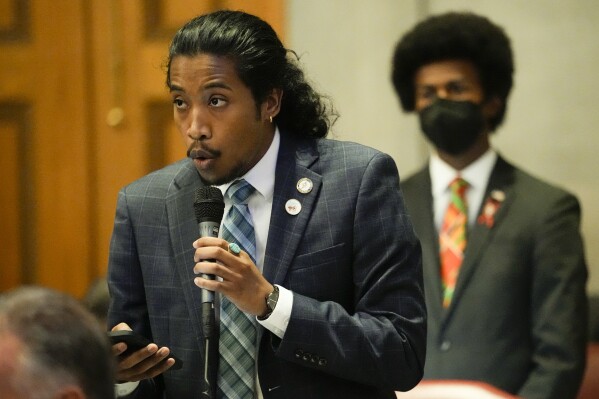
A panel of federal appeals judges has decided not to revive a challenge of a Tennessee law that makes it a felony for anyone other than election officials to distribute absentee ballot applications.
In a 2-1 decision Thursday, the 6th U.S. Circuit Court of Appeals agreed with a lower court’s determination that the ban doesn’t restrict First Amendment speech.
The lawsuit was one of several filed during the COVID-19 pandemic against Tennessee’s vote-by-mail restrictions. A district judge declined to block the ban on distributing the absentee voting form ahead of the November 2020 election, then dismissed the lawsuit in December 2021.
The plaintiffs include Tennessee’s NAACP conference, The Equity Alliance, which focuses on Black voter registration, and others. They have claimed the law violates First Amendment rights and “serves no purpose,” particularly during the COVID-19 pandemic and especially for those without reliable computer, printer or internet access. They want to distribute the official applications to people eligible to vote absentee.
In this week’s opinion, 6th Circuit Judge Eric Murphy wrote for the majority that the plaintiffs may have articulated good policy arguments about why Tennessee should reconsider the law now that the absentee form is posted online, but that it’s up to lawmakers to decide whether to do that. Additionally, without the law, Murphy wrote, “mass mailings” of absentee applications could cause “mass confusion” because of eligibility restrictions to vote by mail in Tennessee.
Tennessee Secretary of State Tre Hargett seconded the panel’s reasoning.
“I agree with the majority opinion and trial court’s analysis that the General Assembly has the authority to make public policy decisions, and the role of the court is to intervene only if a democratically passed law violates a federal standard,” Hargett said in an emailed statement Friday.
In her dissent, Judge Helene White wrote that the majority misapplied legal standards to uphold “a Tennessee law that threatens to imprison persons who distribute publicly available absentee-ballot applications.”
“Thus, in Tennessee, a grandson risks years behind bars for encouraging his grandparents over age 60 to vote by mail and handing them publicly available forms,” White wrote. “The same is true for a soldier sharing forms with other Tennesseans stationed overseas, or a neighbor delivering forms to those who cannot vote in person due to illness or disability.”
Beyond Tennessee’s ban on distributing the official absentee application, people other than election workers can create and give out unofficial forms to collect the info needed to vote by mail, but it’s only legal to that if voters first ask for them. If the unofficial forms are sent out unsolicited, it’s punishable by misdemeanor penalties. Those unofficial forms count as absentee applications as long as the correct information is collected.






